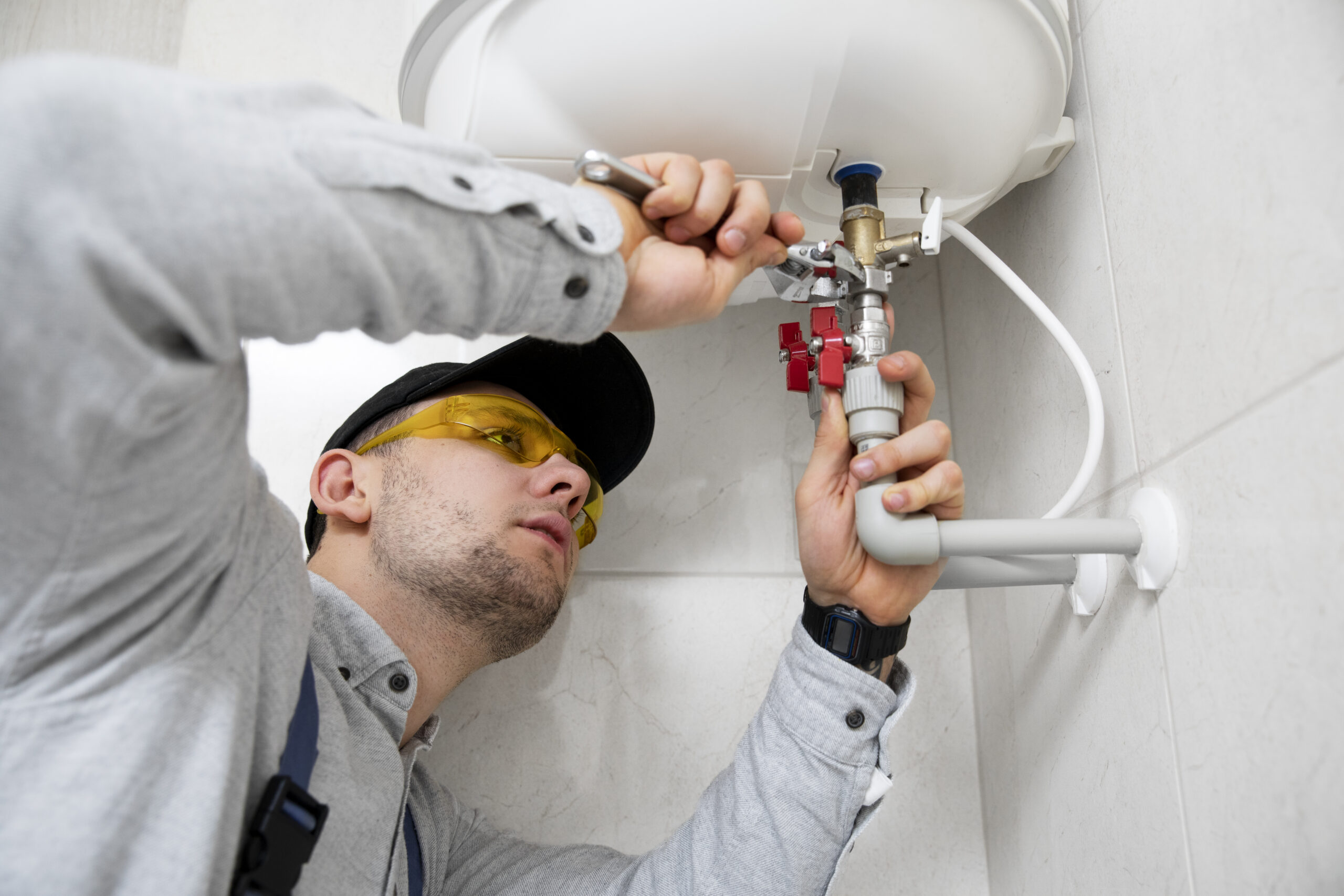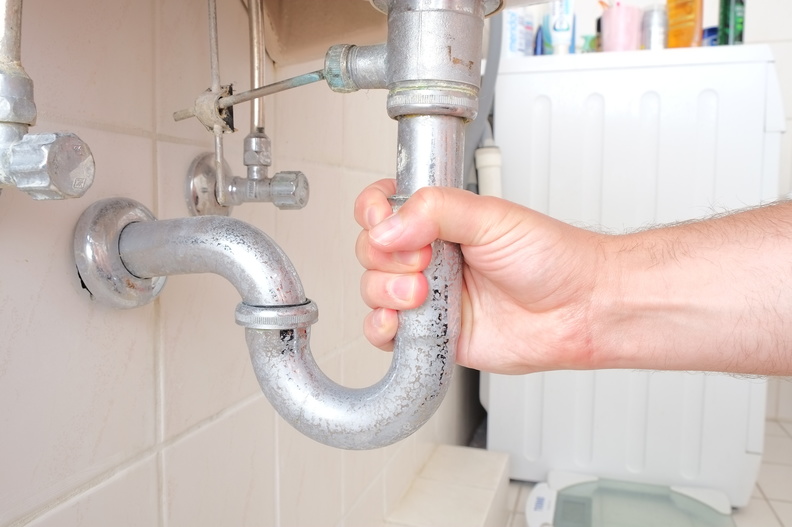Critical Repair Advice: Ways to Manage Issues Until Help Arrives
Critical Repair Advice: Ways to Manage Issues Until Help Arrives
Blog Article
Just how do you actually feel in relation to Expert Tips for Managing a Plumbing Emergency Until Help Arrives?

Plumbing emergency situations can strike any time, causing tension and prospective damages to your home. Whether it's a ruptured pipeline, a clogged drain, or a leaking faucet, understanding just how to manage the circumstance till a professional plumbing gets here can conserve you from further problems. This write-up provides important emergency situation pipes pointers to help you reduce damages and reclaim control throughout a plumbing dilemma.
Shut off the Water System
The very first step in any plumbing emergency is to turn off the water system. For local concerns, such as a leaking faucet or toilet, shut off the valve near the fixture. When it comes to a significant leakage or ruptured pipeline, situate your home's main water shut-off valve and turn it off instantly. Understanding the place of these valves in advance can conserve useful time throughout an emergency situation.
Shut down Your Hot Water Heater
In particular emergency situations, such as a ruptured pipeline, it's smart to shut down your hot water heater. This stops getting too hot or damages to the system when water quits streaming. Shut off the power supply to the water heater (electric or gas) and let it cool down to avoid potential hazards.
Momentarily Quit a Ruptured Pipeline
A ruptured pipe can result in significant water damages in minutes. To reduce the issue:
Call a professional plumbing professional right away to deal with the problem completely.
Have an Emergency Situation Plumbing Kit
Prepare a standard pipes emergency kit to take care of small issues effectively. Your package must include:
Having these tools on hand can make a substantial difference in your ability to take care of emergencies.
Unclog Drains Securely.
A blocked drainpipe can be a discouraging and messy concern. Right here's how to tackle it:.
If these techniques do not function, avoid utilizing too much pressure, as it may aggravate the clog.
Manage Overflowing Toilets.
An overflowing bathroom can create immediate mayhem. Right here's what you need to do:.
Address Little Leakages with Temporary Fixes.
Little leakages can promptly come to be substantial problems if left unattended. Utilize these momentary solutions till professional assistance shows up:.
While these repairs aren't irreversible, they can aid decrease water loss and damages.
Take Care Of Frozen Piping Carefully.
In cooler environments, icy pipelines are an usual emergency situation. If you presume an icy pipeline:.
Know When to Call an Expert.
While quick fixes can assist temporarily, certain plumbing concerns call for instant expert attention. Call a plumber if:.
Quickly speaking to an expert makes certain the problem is settled properly and prevents more complications.
Protect against Further Damages.
Taking quick activity to lessen damage can conserve you money and time in the long run. Below's exactly how:.
Conclusion.
Pipes emergencies can be overwhelming, yet with the best knowledge and devices, you can manage the scenario successfully until aid arrives. By shutting off the water supply, attending to small leakages, and utilizing temporary repairs, you can minimize damages and keep your home safe. Bear in mind, these suggestions are short-lived options; always seek advice from a licensed plumbing professional to deal with the origin of the problem. Prep work and quick reasoning are your best allies in any type of pipes emergency.
Expert Tips for Emergency Plumbing Repairs
Plumbing emergencies can be incredibly stressful and inconvenient. Whether it’s a burst pipe, a clogged drain, or a leaky faucet, these common plumbing emergencies need immediate attention to prevent further damage to your home. But before you panic, it’s important to understand the basics of plumbing repairs and the steps you can take to address these emergencies. In this article, we will share some expert tips to help you navigate through these situations and minimize potential water damage.
Identifying Common Plumbing Emergencies
Leaky pipes and faucets Clogged drains and toilets Burst pipes Low water pressure Water heater problems Essential Tools for Plumbing Repairs
Plunger: Useful for unclogging toilets and drains Adjustable wrench: Needed for tightening or loosening nuts and bolts Pipe wrench: Ideal for gripping and turning pipes Tape measure: Necessary for accurate pipe measurements Plumber’s tape: Helps create watertight seals Understanding Emergency Plumbing Services
Emergency plumbing services are designed to provide immediate assistance for unexpected plumbing issues that can cause significant damage to your home, business, or health. These services are typically available 24/7 and are staffed by experienced plumbers who can quickly diagnose and repair a wide range of plumbing problems.
When a plumbing emergency strikes, time is of the essence. Whether it’s a burst pipe flooding your basement or a gas leak posing a serious risk, emergency plumbing services ensure that help is just a phone call away. These professionals are equipped with the tools and expertise to handle any situation, minimizing damage and restoring your plumbing system to proper working order.
What Constitutes a Plumbing Emergency?
Burst pipes or water supply lines: These can cause extensive water damage and need immediate repair to prevent flooding. Gas leaks or suspected gas leaks: Gas leaks are extremely dangerous and require prompt attention to avoid potential explosions or health hazards. Sewer backups or overflows: These can lead to unsanitary conditions and significant property damage. Clogged drains or toilets causing water to overflow: Overflowing water can damage floors, walls, and other structures. Leaks or water damage causing structural damage: Persistent leaks can weaken the structural integrity of your home or business. No hot water or heating: A lack of hot water can be more than an inconvenience, especially in colder months. Common Causes of Plumbing Emergencies
Aging or corroded pipes: Over time, pipes can deteriorate, leading to leaks or bursts. Improperly installed or maintained plumbing fixtures: Faulty installations or lack of maintenance can result in unexpected failures. Tree roots or other debris infiltrating your sewer line: Roots can grow into pipes, causing blockages and backups. Frozen pipes or water supply lines: In colder climates, pipes can freeze and burst, leading to significant water damage. High water pressure or sudden changes in water pressure: Excessive pressure can strain pipes and fixtures, causing them to fail. Natural disasters such as floods or earthquakes: These events can disrupt your plumbing system and cause severe damage. Steps to Minimize Water Damage
Locate the water shut-off valve: Knowing where the valve is can help you quickly cut off the water supply to the affected area. Turn off the water heater: If there’s a risk of water coming into contact with the heating element, make sure to turn off the water heater to avoid potential accidents. Open faucets and drain pipes: By opening faucets and drain pipes, you can relieve pressure and empty any standing water. Collect and contain water: Use towels, buckets, or bins to collect water and prevent it from spreading to other areas of your home. https://leecountyplumbingandwellservice.com/expert-tips-for-emergency-plumbing-repairs/

Hopefully you enjoyed reading our topic on . Many thanks for taking a few minutes to browse our piece. Sharing is good. Helping people is fun. Thanks a lot for your time. Revisit us soon.
Click Here Report this page